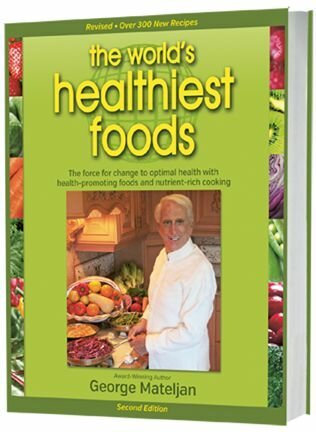 The World's Healthiest Foods are health-promoting foods that can change your life.
The World's Healthiest Foods are health-promoting foods that can change your life.
Try our exciting new WHFoods Meal Plan.
 The World's Healthiest Foods are health-promoting foods that can change your life.
The World's Healthiest Foods are health-promoting foods that can change your life.
Try our exciting new WHFoods Meal Plan.
The simplest answer to this question is, "it depends." Research studies do not show that an automatically increased rate of weight loss success can be brought about through vegetarian eating. In fact, a very recent study in this area showed pesco-vegetarians (who consumed plants and seafood) and semi-vegetarians (who followed plant-based diets, with infrequent intake of seafood and animals foods) to have an almost identical average rate of weight loss with meat eaters. However, with strict vegan eating (involving no intake of any animal foods or seafood), this relationship was found to change, with significantly better weight loss success in vegans versus meat-eaters (or other types of vegetarians). This difference in vegan success may not be entirely due to diet, however. Vegan participants in research studies are often more likely to engage in vigorous physical activity, and less likely to consume alcohol, than meat eaters or other types of vegetarians.
If you change this question slightly, and look not specifically at weight loss but at the extent of obesity among vegetarians versus non-vegetarians, vegetarians come out ahead. Using a body mass index (BMI) of 30 or greater as a criterion for clinical obesity, recent studies have found that approximately 33% of meat eaters are clinically obese, as compared with 27% of semi-vegetarians, 18% of pesco-vegetarians, 17% of lacto-ovo vegetarians, and 9% of vegans. In some of these studies, an additional very interesting finding has been the great similarity in calorie intake amount these different groups. This finding lends further support to the possibility of weight management advantages from vegetarian eating.
On a practical level, you are not going to improve your chances of weight loss or weight management by swapping animal foods for low-quality plant foods, or by bringing more plant foods into your diet in a random, unplanned way. Strictly in terms of calories, you are likely to increase your calorie intake by such an approach. For example, a cup of brown rice contains about 37% more calories than four ounces of salmon, and one cup of garbanzo beans contains about 71% more. Only one of our Top 10 highest calorie foods is an animal food (lamb). And only two of our Top 25 highest calories foods are animal foods (lamb and chicken). But if you broaden the context beyond calories, there are even more reasons why replacement of animal foods with low-quality plant foods does not make sense. Healthy metabolism is needed for successful weight management, and low-quality plant foods like heavily processed and refined grain products or reconstituted pulp-free fruit juices aren't likely to provide you with the nutrient support you need for healthy metabolism. Our WHFoods recommendations are as follows.
For more information on the subject of vegetarian diets, please see our overview article "A Practical Look at Vegetarian Diets" as well as the following Q+As.
To see the research articles we reviewed in the writing of these articles, see here.

Everything you want to know about healthy eating and cooking from our new book.

Order this Incredible 2nd Edition at the same low price of $39.95 and also get 2 FREE gifts valued at $51.95. Read more